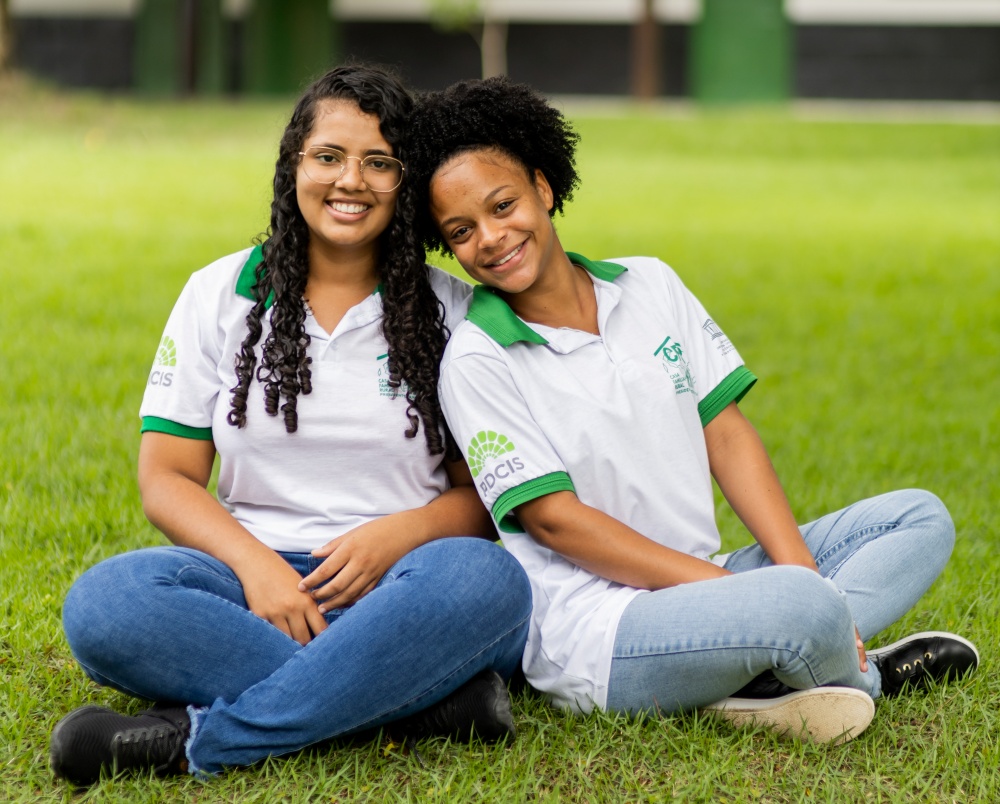Contributing to expanding access to the Our Culture collection, the Norberto Odebrecht Foundation (FNO) has just launched the digital...
A look at gender equality
DATE: 06/28/2024
Due to the mobilization of women over the years to claim achievements in the face of the problems they face, the agendas related to their rights are increasingly in evidence in our society. Although there has been progress in the fight for gender equality, in practice, the road to ensuring that women receive the same opportunities as men is a long one.
According to the World Economic Forum’s Global Gender Inequality Report 2023, if we continue at the current pace, it will take more than 131 years to eliminate the gender gap. Even though women have higher rates of school attendance and completion rates at all stages of education, their unemployment rate (13.9%) is higher than that of men (9%), and almost half of them remain outside the labor market, according to a 2022 survey by the Brazilian Institute of Geography and Statistics (IBGE).
Given the urgency of this agenda, organizations can play a strategic role in promoting women’s rights. “The private philanthropic sphere has the potential to make countless contributions to this agenda. It’s necessary to foster an attentive approach to gender issues and adopt specific actions that help promote changes for greater equality,” says Claudia Pimentel, head of the Norberto Odebrecht Foundation’s Partnerships area.
In 2020, the Group of Institutes, Foundations and Companies (GIFE) published the guide “What can Private Social Investment do for… Women’s Rights?”. In it, they present the challenges and paths of action that can be followed by organizations to collaborate in improving the gender equality scenario, such as strengthening female leaders, confronting violence and initiatives for cultural and social change.
The Foundation is constantly improving its work. In 2003, the institution created PDCIS, a social program whose practices include “Women’s Action in the Countryside”, on the Governance and Citizenship front. This practice encourages female leadership in the context of family farming, emphasizing the active participation of women in production routines and the need to bring the gender debate to the rural environment.

The Norberto Odebrecht Foundation strengthens the promotion of women’s rights through programs and projects
The Family Houses of the Southern Bahia Lowlands, institutions of integrated secondary and technical education, are partners in the implementation of the PDCIS and, consequently, in the promotion of women’s rights. As well as dealing with this issue by providing students with life skills and greater civic participation, the schools provide an exchange of knowledge on this topic through talks with female leaders. In order to combat the lack of access to basic personal hygiene products, they also distribute monthly Menstrual Dignity Kits to students.
Helen Nunes, a teacher at the Agroforestry Family House (CFAF), tells how the program encourages female emancipation through the Educational-Productive Projects (PEPs), practical learning of various crops for the young people in training. “There are still many parents who don’t accept their daughters working in the fields. We were able to empower our students by demonstrating that women have the capacity to develop in the countryside. In the hydroponics PEP, most of which it is the girls who do at our school, they are the ones who take the instructions to their parents and are listened to, becoming a reference for them in this knowledge,” she says.
In the Family Houses, the majority (84%) of students identify themselves as black and almost half are women (48%). By collaborating with these institutions in the implementation of the PDCIS, the Foundation is also helping to provide black women, a group that is even more vulnerable, with training that equips and empowers these young women to have greater autonomy, opportunities and quality of life. Monick Santos da Conceição, a CFAF graduate, says that studying at the Family House has changed her reality and outlook on life. “It was there that I came to believe that women can work in the field and run their own businesses,” she says.
Other activities
Seeking to take another step towards broadening its scope of action for gender equality, this year the Norberto Odebrecht Foundation developed a new project based on the practices of the PDCIS, “Dignity and economic autonomy for rural women”. Approved by GlobalGiving, an international crowdfunding platform aimed at supporting NGOs around the world, the project aims to foster greater dignity, food security and economic autonomy for 100 women living in rural communities in the Atlantic Forest of the Southern Bahia Lowlands.
In the guide “What can Private Social Investment do for… Women’s Rights?”, GIFE points out that organizations can also contribute to change by promoting educational initiatives to combat male chauvinism through collaborations with companies, to develop actions focused on the theme of gender equality based on the exchange of experiences.
It was with this in mind that the Foundation, in partnership with OR, the Novonor Group’s real estate development company, created the + Elas in 2023 volunteer program. Designed by women, the program aims to achieve female empowerment through mentoring between OR leaders and PDCIS partner institutions. Through debates on topics such as empathy, sorority and equality, + Elas encourages women from different environments to share their stories and recognize their roles as a source of inspiration and strength.
“When we think about the still very unequal scenario of gender relations, we always try to put this agenda as one of the guiding themes of our work. Philanthropic organizations must take responsibility for the powerful position they have as agents of change, so they must always remain in the search for solutions that contribute to a more just, democratic and equitable society,” concludes Claudia Pimentel.



No comments